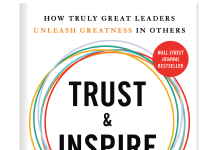What is a winning strategy? Why do some people, families, and organizations take a dive, some merely survive, while others thrive? What leads up to a disaster or collapse? Why do some squander success, while others continue to elevate? How do we build a solid foundation that assures solid, authentic growth?
“Me We Do Be: The Four Cornerstones of Success” is the result of research that has spanned 25 years at the intersection of sociology and economics. Specifically, I have explored what behaviors lead to disaster, recovery, or prosperity.
As an economist, I measure the financial effects caused by disasters and other detrimental conditions. In other words, when disaster strikes, I often am called in to compute the business and real estate damages. Appraisers measure value, but I measure the loss of value. Moreover, also being a sociologist, I keep my eye on the people behind the statistics as I develop the strategies to move forward. It is a narrow consulting niche involving research, valuation, negotiation, and strategy, and it has provided unique access to interesting people and places around the globe.
The world’s majestic structures stand as legacies to great empires and civilizations. The medieval castles of Europe, Roman cities, and the Great Wall of China still awe and inspire. The ancient city of Machu Pichu and the Egyptian pyramids are simply baffling. Even the obscure British scientific outposts in Antarctica are impressive as they withstand the harshest winters on planet Earth.
While the great structures include pyramids, cathedrals, towers, and opera houses, they all have one thing in common: The integrity of all these structures comes down to one element—all of the world’s great structures sit on a solid foundation.
Not every structure has met this requirement, and cutting corners is disastrous. Indeed, the quality of a building’s foundation means the difference between a trophy or a tear down.
Nobody really knows the origins of the term, “fair and square,” but I believe it came from the construction of the cornerstones of history’s great buildings. “Fair” refers to rock—that it is free of cracks. “Square” means the stone is perfectly cut to be level and the corners are at right angles.
Cornerstones were chiseled with one swing of the hammer at a time, just as our lives’ foundations are constructed with one habit at a time. It is hard work to construct a cornerstone, which then sits underground and goes largely unnoticed. But laying a solid foundation ensures that whatever is built on it will last. It is not easy, but it is worth it. In fact, it is essential.
The four cornerstones are essential foundational principles, summed up in four simple words, Me We Do Be. The Me habits improve the quality of our thinking and mental illumination. The We habits build our relationships. The Do habits elevate our health, finances, and living space. The Be habits include setting goals, managing our time, and building our legacy.
A five-year-old can understand Me We Do Be principles, but I have worked on several multimillion-dollar cases where we followed this same framework. It works because it is practical, complete, and balanced. The objective of the four-cornerstone framework is not to define success. The purpose runs deeper. The four cornerstones are for those who have vitality and want to continually elevate. The ultimate goal is not to become a “success” in terms of accumulating power, prestige, or more “stuff”; but rather, as Albert Einstein said, to become a “person of value.”
British psychologist Oliver James describes a society that is obsessed with commercialism and appearances, which comes with a set of related issues such as debt, anxiety, and general life overload. There have always been millions of self-consumed drones who follow the crowd and go through life day-to-day. Some people are content with the status quo. Many simply follow the commercially driven, sugarcoated counterfeits for success.
Others have reacted by downshifting and have made an effort to balance their lives with less income and social climbing, but more focus on family, close friends, and those things that bring a general sense of well-being.
Personally, I don’t buy into the mass media’s definitions of success. The “person of value” has a solid foundation of core principles and virtues, has abundant social connections, takes care of his or her health, space, and money, and ultimately contributes to something bigger than himself or herself.
The four cornerstones renew the focus on those universal laws upon which all achievements are built. As we look at each cornerstone and its corresponding disciplines, we ensure that we are on solid footing.
People who lose their footing cause many of the crises I study. While I have spent decades working on the world’s great disasters, that is not my legacy. My passion is to explore the lessons and gain some insights that will help the recovery process.
The four cornerstones set forth the foundation of all great pursuits whether it is art, science, love, leadership, education, sports, religion, politics, parenting, or anything else. These same cornerstones are consistently observed in the personal disciplines of a diversity of high achievers, including Lincoln, Einstein, da Vinci, Shakespeare, Gandhi, and Washington.
Likewise, these distinct attributes can be observed in the lives of historic religious and philosophical figures including Moses and Jesus, as well as Buddha, Mohamed, Socrates, Plato, and Aristotle. If you look carefully, the four cornerstones are at the foundation of all great lives.
Excerpt from “Me We Do Be: The Four Cornerstones of Success” by Randall Bell, Ph.D.
Randall Bell, Ph.D. is a socio-economist, keynote speaker, best-selling author, and expert in success research. Dr. Bell is CEO of Landmark Research Group, LLC, and author of “Me We Do Be: The Four Cornerstones of Success.” He consulted on the World Trade Center, the Flight 93 Crash Site, the BP Oil Spill, Hurricane Katrina, the nuclear testing on the Bikini Atoll, and several other tragedies, including the JonBenét Ramsey and O.J. Simpson cases. Dr. Bell’s research has taken him to 50 states and seven continents. As a leading expert, Dr. Bell has been profiled in the Wall Street Journal, World News Tonight with Diane Sawyer, and ABC’s 20/20, to name a few. Follow @RandallBellPhD.




